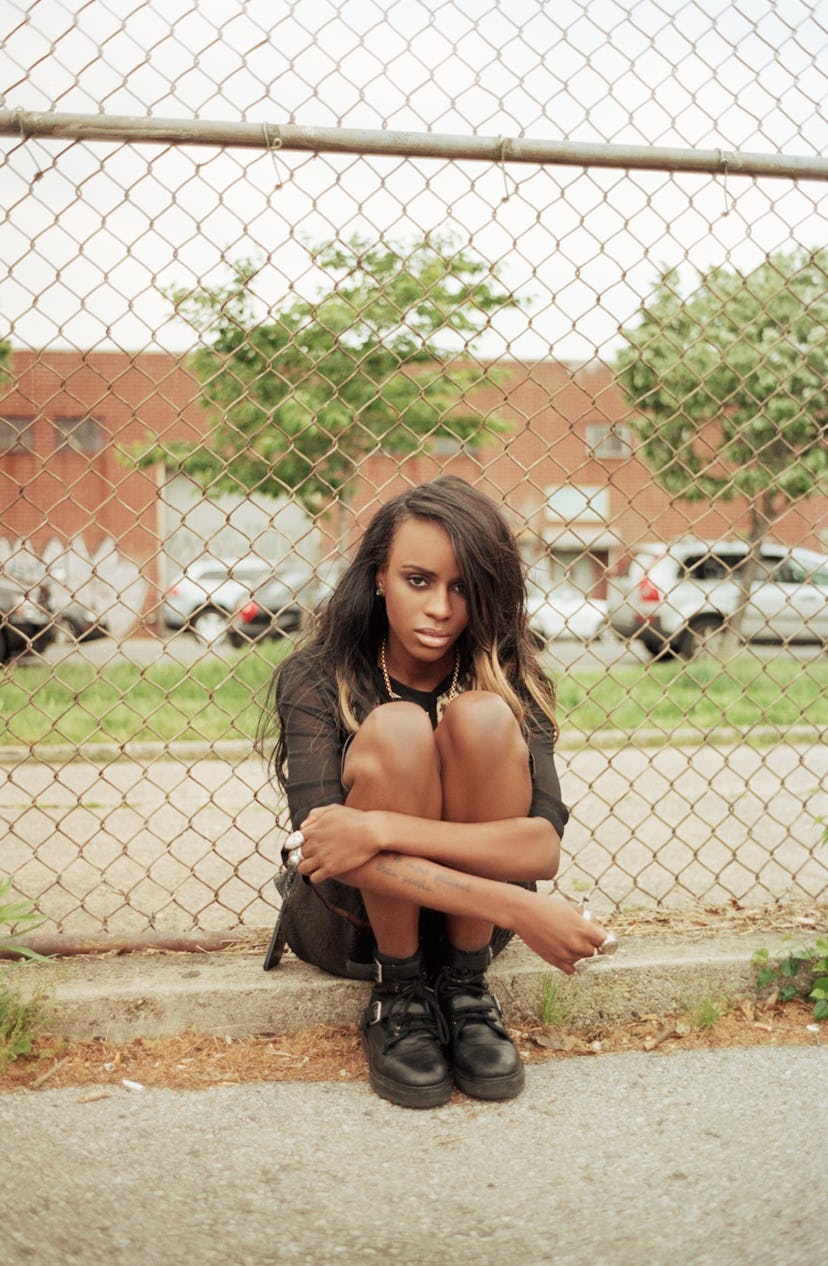Angel Haze: Dirty Gold

Ignoring advice from her label, the tenacious rapper Angel Haze released her debut album, Dirty Gold, at the end of December—four months ahead of schedule. The decision was a costly game changer for record sales, but the young artist seems unfazed—and even proud—of the commotion her leak has caused. “The date kept getting pushed back,” explains Haze, who finished the album in August after three months of recording. “It felt like I was standing at a crossroads.”
Haze wasn’t the only one eager for the next step; buzz surrounding the Detroit-born, self-identified pansexual rapper had been building since 2012, when she digitally released her first EP, Reservation. With her pop-meets-hip-hop hooks, provocative tongue, and ferocious social media persona (“On the Edge,” a diss aimed at rival Azealia Banks, ignited a massive Twitter battle between the two rappers) getting attention was easy—creating a coherent album that lived up to the industry’s expectations proved more daunting. “It’s an incredibly intimidating and scary process to take on,” she admitted. But the result is a success: Dirty Gold is a genre-defying album that highlights Haze’s ability to move seamlessly from “Sing About Me,” a danceable party track, to more emotional tracks like “White Lilies,” a song that addresses the invisible scars of sexual abuse. “This album is about triumph. It’s about fighting back against the factors that try to determine who you become,” explains Haze. “For me, music is like philanthropy. It is an uplifting method of perseverance.”